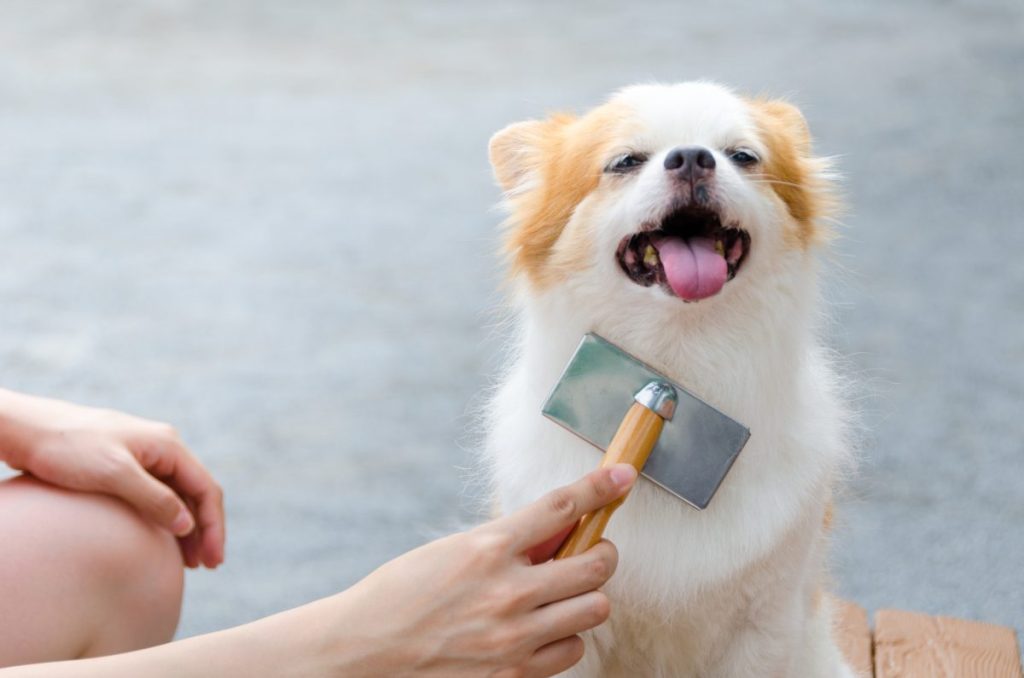
Why is My Dog Shedding So Much in the Fall? Understand Now!
Share
As the leaves turn and the temperatures drop, you may notice that your furry friend is shedding more than usual. If you find yourself asking, why is my dog shedding so much in the fall?you are not alone. Shedding is a natural process for dogs, and various factors may contribute to the increase during this season. This article delves into the reasons behind seasonal shedding and how you, as a health-conscious pet owner, can manage it effectively.
Understanding why is my dog shedding so much in the fall begins with recognizing the biological and environmental influences that affect your pet. Almost all dogs shed to some degree, but certain breeds may experience more significant changes. Let's take a closer look at this phenomenon.

Understanding the Shedding Process
Shedding is a normal part of a dogs life cycle, influenced by genetics, health, and environmental factors. Dogs possess two primary types of hair: the undercoat, which provides insulation and warmth, and the guard hairs that protect the undercoat. During the fall, dogs typically shed their undercoat in preparation for the colder winter months.

Factors Influencing Shedding in the Fall
1. Seasonal Changes
As the weather shifts, dogs react to changes in daylight and temperature. Fall is often marked by shorter days and cooler weather, prompting dogs to shed their summer coats to accommodate the climate. This shedding process helps your dog adapt to the new season.
2. Diet and Nutrition
A well-balanced diet plays a pivotal role in keeping your dogs skin and coat healthy. Dogs that lack essential nutrients may experience increased shedding. Its crucial to feed your pet high-quality food that contains healthy fats and proteins to promote a shiny, healthy coat.
3. Stress and Anxiety
Just like humans, stress can affect dogs, leading to physical changes, including shedding. Changes in your dogs environment, such as moving, new family members, or even seasonal changes in routine, can elevate stress levels.
4. Health Issues
Excessive shedding can be a sign of underlying health problems. Skin allergies, hormonal imbalances, or other ailments can lead to increased hair loss. If your dog is shedding excessively, consider consulting your veterinarian for a comprehensive checkup.

Managing Your Dogs Shedding
While shedding is natural, there are steps you can take as a responsible pet owner to minimize its impact.
Regular Grooming
Implement a routine grooming schedule. Regular brushing can effectively reduce the amount of loose fur in your home, making it easier for you to manage. Depending on the breed, some dogs might require more frequent grooming sessions.
Healthy Diet
Invest in a nutritious diet that supports a healthy coat. Foods rich in Omega-3 and Omega-6 fatty acids can promote skin health and reduce shedding. Talk to your veterinarian about the best dietary choices for your dog.
Hydration
Encourage your dog to drink plenty of water. Proper hydration contributes to overall health and helps maintain skin elasticity, which can reduce shedding.
Stress Reduction
Monitor your dog for signs of stress and anxiety. Create a comfortable and secure environment for your pet. Engage in physical activities and provide mental stimulation to help alleviate stress.

When to See a Veterinarian
If your dogs shedding becomes excessive or is accompanied by other concerning symptoms, such as redness, itching, or bald patches, seek veterinary advice. Health issues need prompt attention, and professional evaluation is key.
Related Articles
For further reading, check out these informative blogs:
- Dog Licking Paw Balm
- Put on Dog Harness
- Dog Age by Teeth
- Dog Shedding in January
- Shedding After Bath
FAQs
1. Is it normal for my dog to shed more in the fall?
Yes, increased shedding during the fall is common as dogs typically shed their summer fur to adapt to the colder months.
2. What can I do to reduce my dog's shedding?
Regular grooming, a healthy diet, and proper hydration can significantly help manage shedding.
3. When should I consult a veterinarian about my dog's shedding?
If your dog experiences sudden or excessive shedding along with other symptoms like itching or bald patches, it is advisable to seek veterinary care.
As an Amazon Associate, I earn from qualifying purchases.
